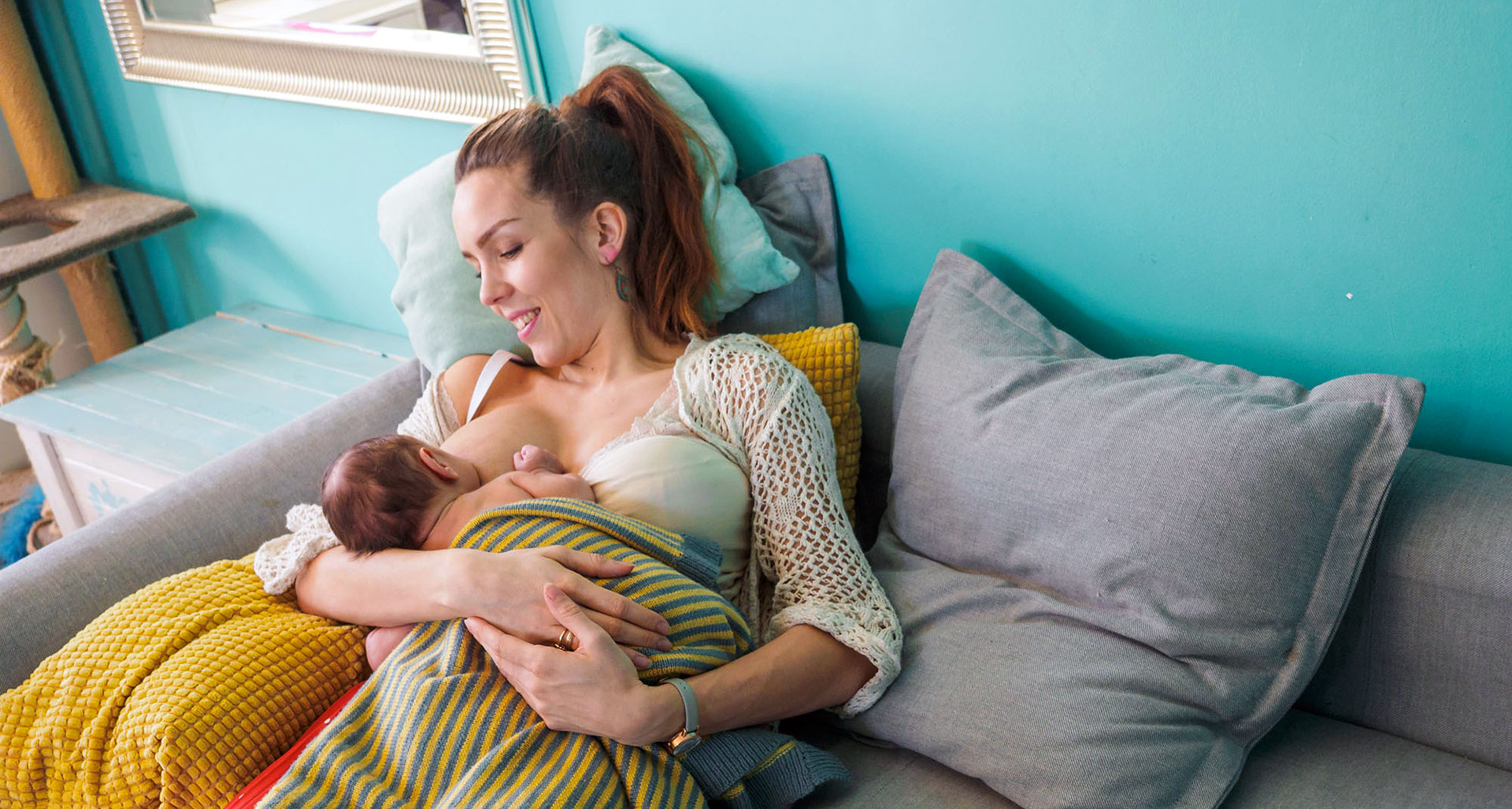“Imagine a vial containing stem cells, antibodies and nutrients – a personalized food and medicine to build immunity, shape development and protect health for life. How much would we pay for that? And yet, it already exists – in women’s breastmilk,” says Angela Giusti from the Italian National Institute of Health (ISS).
Breastfeeding is one of the most powerful investments in lifelong health for babies, for mothers and for society at large. Yet it remains undervalued and under-supported.
The 1991 WHO–United Nations Children’s Fund (UNICEF) Baby-Friendly Hospital Initiative (BFHI) set global standards to protect, promote and support breastfeeding within maternity and newborn services. Based on the BFHI, a current project is expanding these principles into community settings.
Angela Giusti, together with Anne Bærug from the Norwegian Directorate of Health, co-lead the Baby-Friendly Community and Health Services task under the European Union (EU)-funded Joint Action to Prevent Noncommunicable Diseases (JA Prevent NCD).
“Our ambition is to bring the WHO–UNICEF standard beyond the hospital setting to community health services, and also to pilot actions outside health services, especially to less advantaged areas, to create breastfeeding-friendly environments,” says Anne.
Baby-Friendly Community and Health Services has already shown results in Norway, earning recognition as an EU Best Practice in 2022, and is now being tailored and expanded in 7 European countries: Greece, Italy, Lithuania, Norway, Slovenia, Spain and Ukraine.
Rethinking the narrative around breastfeeding
Despite the well documented health benefits of breastfeeding, rates in Europe have fallen sharply and are now the lowest of any continent.
Breastfeeding is not just about nutrition. It offers profound, long-term protection: for women, there’s good evidence that it can lower the risk of breast cancer; for children, it reduces the likelihood of obesity, diabetes and other NCDs, while also offering protection against infections.
Yet public messaging continues to frame breastfeeding as a bonus rather than the norm, and that framing shapes how society supports, or fails to support, women.
“When we talk about smoking, the norm is clean air, and the conversation rightly focuses on the harm caused by tobacco,” says Angela. “But with infant feeding, it’s the opposite: we frame breastfeeding as a bonus rather than naming the real risks of formula feeding.”
She points out, “Why don’t we talk about the missed protections and exposures linked to formula? Because when we do, it’s too often turned against us, as if we’re against women or freedom of choice, which is a misrepresentation of the truth. What we are saying is that society must change so women are empowered to breastfeed if they want to, not left to navigate a system that makes it harder at every step.”
A caring community for parenting
“Anyone who interacts with families has a role to play. It could be the cashier at the supermarket, the hairdresser, the nurse, the neighbour. Parents place their trust in many different people, and we need to make sure those people are part of this caring community for parenting. This is the way – this is where the baby-friendly community approach proves its value,” explains Angela.
In Italy, the pilot is focused on Calabria, a region with high childhood obesity and low breastfeeding rates. These factors reflect broader social inequalities that impact health outcomes and leave families more vulnerable to aggressive marketing of infant formula and unhealthy ultra-processed foods.
In Calabria, the initiative brings together 29 municipalities, 5 community health services, 2 hospitals, and a wide network of schools from kindergartens to colleges. Each stakeholder has identified what they can contribute to support breastfeeding.
Angela offers one such example: “Some of the kindergartens have agreed to set up the infrastructure needed for parents to leave expressed breastmilk when dropping off their children. Teachers have committed to storing it properly and feeding the children with it during the day. It’s a small but powerful shift.”
Similar activities are going to be implemented across the 7 participating countries, depending on local contexts and challenges.
Laying the policy and system foundations
Breastfeeding is shaped by a web of factors: national policies, workplace conditions, public attitudes, how services are structured and who women can count on for support.
“We can’t place all the responsibility on communities – national and international action is essential. In many countries, we don’t even have basic data on breastfeeding. That’s a sign of how low it’s been on the agenda,” says Anne.
“With WHO/Europe, we’re now starting to collect key indicators so we can track progress and hold systems accountable. Too often, families don’t get the support they need because health professionals haven’t been trained to deliver it. WHO has found major gaps in pre-service training across Europe. That’s why we’re developing a European e-learning platform – BreastFEEDucation – to ensure professionals are equipped to support breastfeeding in line with Baby-Friendly standards.”
Anne emphasizes that strong regulation is also key. “Right now, companies selling breastmilk substitutes are sponsoring events for health professionals – a clear conflict of interest. WHO has been instrumental in addressing the marketing of breastmilk substitutes, and now the focus is shifting to the fast-moving world of digital marketing.”
She adds, “Together with WHO and various country representatives, we have collaborated on a draft resolution on regulation to tackle digital marketing specifically, and it will be presented at this year’s World Health Assembly in May.”

Healthy beginnings, hopeful futures
Scientific evidence is increasingly clear: what happens in the earliest stages of life, including early nutrition, has a profound impact on health and development across the lifespan. Breastfeeding is not just a personal choice – it’s a collective investment in public health.
Launched this World Health Day, WHO’s year-long campaign “Healthy Beginnings, Hopeful Futures” highlights the importance of nurturing environments during the earliest moments of life. Breastfeeding-friendly communities are a powerful part of that vision – because healthy beginnings require collective commitment, and hopeful futures start with environments where breastfeeding is supported, protected and promoted.




